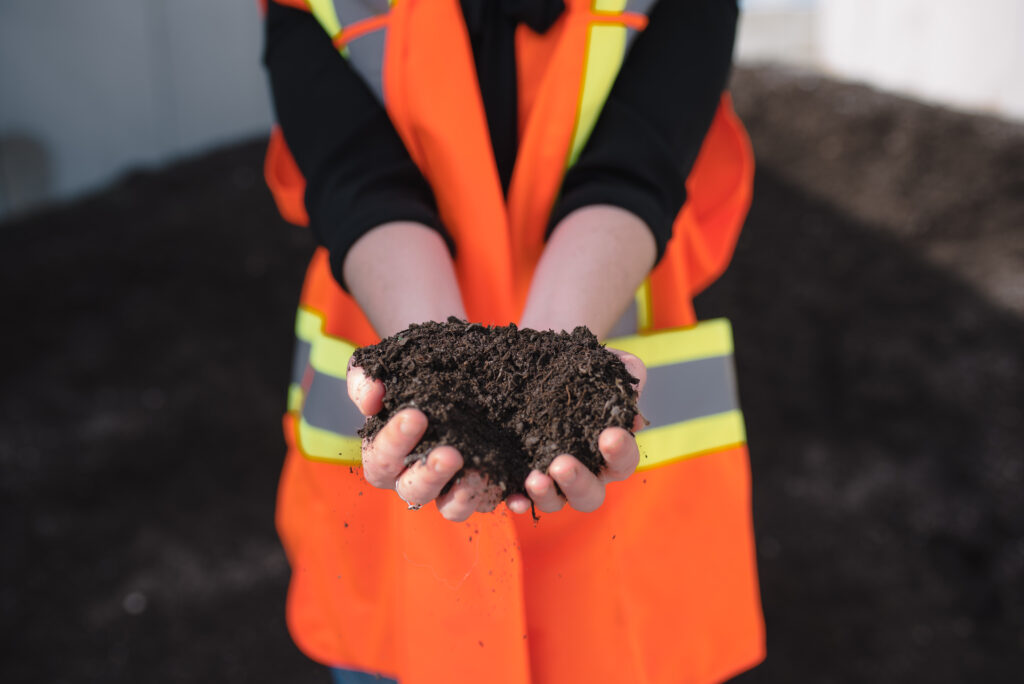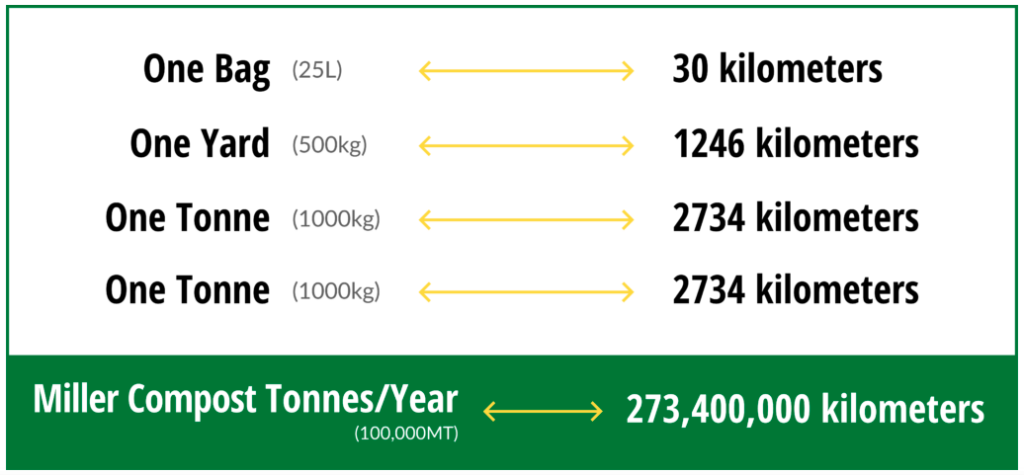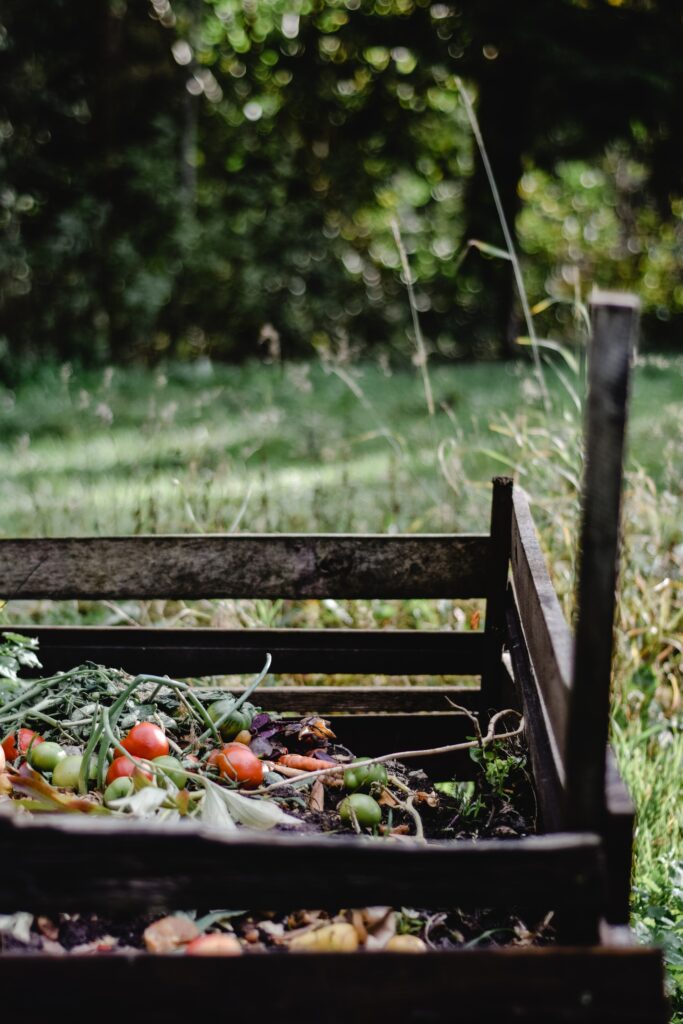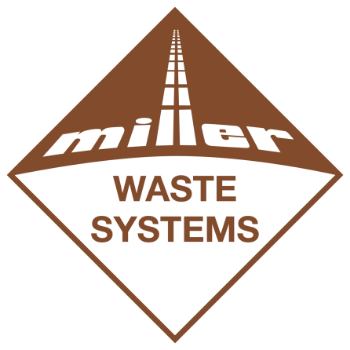Composting is a means of recycling organic matter from our homes to support the health of natural systems – and it all starts with you! Your municipality probably collects leaf and yard waste separately from your garbage, recycling, and food waste. Your town or region probably has instructions on where to place your houseplants, lawn clippings, dead leaves, and other organic material left over from landscaping or garden projects. On your designated waste pickup day, waste management companies like Miller Waste pick them up right from your curbside.
As waste management specialists, Miller is committed to sustainably processing and recycling waste so we can reduce greenhouse gas emissions, return the value of nutrients to the earth, and help regenerate natural systems. Here are just a handful of the ways composting benefits all of us:

Here are four reasons why you should compost:
1. It Diverts Waste From Landfills
Diverting waste from landfills is crucial for our planet. By separating your organic waste from the trash, you are ensuring it ends up in a compost facility, where specialized processes and equipment can treat the waste and convert it to compost and other soil amendment products.
When organic matter is left to decompose in landfills, it can emit harmful greenhouse gases into the atmosphere and worsen climate change. Compost, by contrast, captures and stores carbon, removing it from the atmosphere and offsetting the carbon released by burning fossil fuels.
Organic waste is also an excellent source of the macro and micro-nutrients our soil needs to thrive, some of which must otherwise be extracted from finite reserves. Therefore, recycling nutrients eliminates the need to mine new material from the earth in an energy-intensive process.
Diverting waste from landfills is crucial for our planet. Composting allows you to reuse food and yard waste, transforming them into nutrient-rich fertilizer that helps your garden flourish. You complete a natural cycle that mimics nature’s recycling system by diverting organic waste from landfills and returning it to the earth as valuable compost.
2. It Makes Soil More Fertile
Often referred to as “Black Gold” by gardeners, compost is a treasure trove of valuable nutrients and beneficial microorganisms. When added to your garden, it improves many aspects of soil structure, including its ability to regulate moisture levels, improve the flow of oxygen, and resist run-off and erosion. Healthy soil also provides a habitat for earthworms and other insects that naturally remove weeds and other pests, reducing your reliance on harsh chemical pesticides.
Unlike chemical fertilizers, it is not possible to over-apply compost. Similarly, compost releases nutrients slowly, as opposed to chemical fertilizers that deliver nutrients instantly to plants. This means that, while using compost, gardeners do not have to worry about harming plants with a toxic overdose of chemicals.
As part of our commitment to sustainability, we collect yard waste and transform it into usable compost and other fertilizers for your gardens. Explore our comprehensive catalogue of products available for delivery to Grimsby, Richmond Hill, Clarington and Pickering.

3. It Removes Greenhouse Gases from the Atmosphere
Compost, by contrast, captures and stores carbon, removing it from the atmosphere and offsetting the carbon released by burning fossil fuels.
Compost, therefore, has an important role to play in cleaning our air and mitigating the effects of climate change.
In fact, with every bag of compost you use, you offset the greenhouses gases emitted by 30 kilometers of driving!
In total, Miller’s compost production offsets the emissions of 273,400,000 kilometers worth of driving every year.
Composting prevents organic materials from decomposing anaerobically in landfills, which would otherwise generate greenhouse gases like methane—a significant contributor to global warming. By composting your food waste in your backyard, you actively create nutritious soil for your garden while reducing harmful pollution.
Organic waste is also an excellent source of the macro and micro-nutrients our soil needs to thrive, some of which must otherwise be extracted from finite reserves. Therefore, recycling nutrients eliminates the need to mine new material from the earth in an energy-intensive process.
See the photo below for a more visual representation of these facts, to truly understand the impact composting can have on our environment.

Source: The Compost Council of Canada
4. Compost Conserves Water
Compost enhances the soil’s water retention capacity, which means you do not need to water your garden as often. Additionally, when organic material begin to decompose in landfills, , it releases a potentially harmful liquid called leachate. Leachate can pose a serious risk to human and animal health because it can seep into groundwater and nearby bodies of water, causing pollution.
When we compost organics instead, we can better control the decomposition process and prevent harmful elements from entering the environment. As a result, we can conserve water and limit the spread of disease.

Whether it’s a warm season or any time of the year, composting remains essential. If you are looking for Miller Waste Compost services near you, visit our website. to find out more. Let us work together to create a better world through composting. Contact us for more information about our composting services.
Additionally, if you are looking for more ways to become sustainable and give back to the planet, check out our other blogs on how to create a waste management plan for your business, how to picnic and camp sustainably and more!
